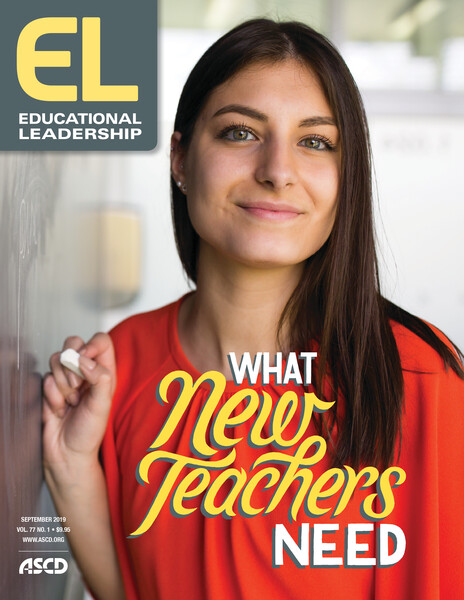May 2019: What Teens Need from Schools
A Timely Issue
This is an issue that I'm going to keep on my desk and reread as the new school year approaches. Now more than ever, teens (and all students) need a voice in their ongoing and very personal educational experience. Most of all, they need to know that adults—both at school and elsewhere—care about them.
—Cathy Gassenheimer, from "Anxiety, Depression, Hope and Connection: Insights into What Teens Need from Our Schools" blog post.
Love the May 2019 magazine. From a high school perspective, it was wonderful seeing a whole month dedicated to the teenage learner. Thank you for publishing an entire magazine dedicated to the complex teenage brain and the time period we help guide them through as educators. I particularly enjoyed Cathy Vatterott's seven points that teens need to do in her article "The Teens Are Not Alright." Great magazine, EL. Keep up the good work.
—Brian R. Churovia, vice principal, Riverside High School, Ellwood City, PA
I just read the issue you and your team published on adolescents. I thought it was terrific, and I will use several of the articles with our middle and secondary school student teachers.
—Sam Intrator, professor of education, Smith College, Massachusetts
Taking Action for Teens
I am not sure if there is a better resource for school administrators out there then EL magazine. After reading "The Teens Are Not Alright," I've decided a joint assignment/test calendar will be happening at my school next year to help reduce student stress and anxiety.
—Christopher Martin (@ChrisMartin_P)
The Developing Teen Brain
Loved the article, "Honoring the Teen Brain: A Conversation with Thomas Armstrong." Brain development is a critical time during adolescence, and we can't forget to incorporate students' emotions in daily instruction.
—Jessica Currin (@jessicacurrin)
A Place for EL on the Deck?
Reading for this evening on the deck: "Giving Teens a Place at the Table" by Eric Hardie. "The good news is that, according to the students' responses, being a caring adult doesn't require extensive training."
—Kelly Wachel (@KellyWachel)
This Is Not All Right
I am looking at the article titled "The Teens Are Not Alright" by Cathy Vatterott. I am shocked to see that the title includes alright in your publication. According to Dictionary.com, the form alright is a one-word spelling of the phrase all right. Alright is commonly used in written dialogue and informal writing, but all right is the only acceptable form in edited writing.
Basically, it is not all right to use alright in standard English.
—Karen Scalzo, writing coordinator, New Canaan Public Schools, New Canaan, CT





